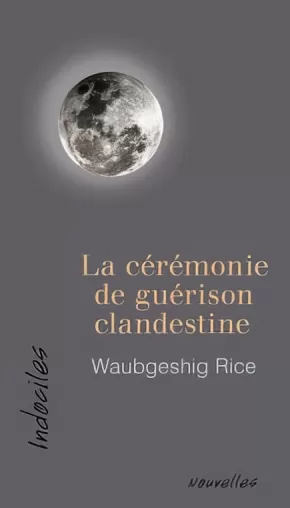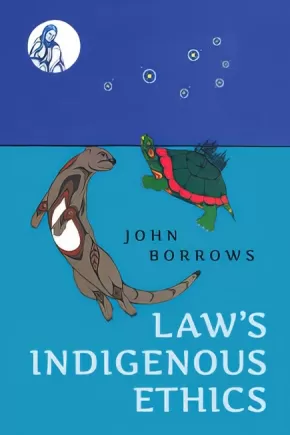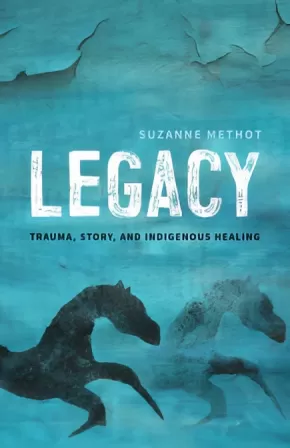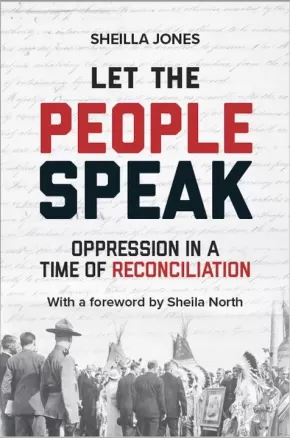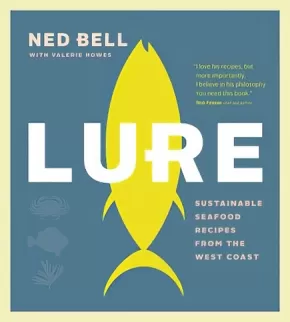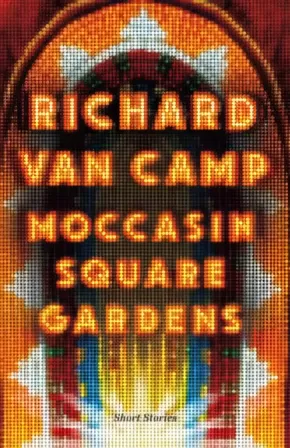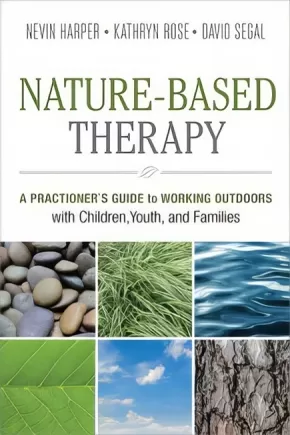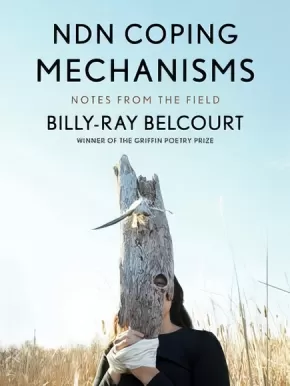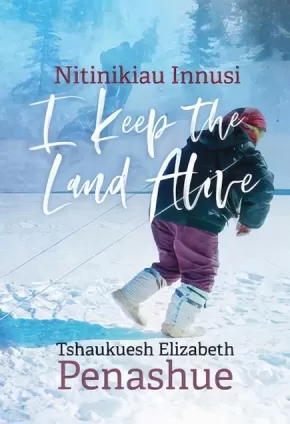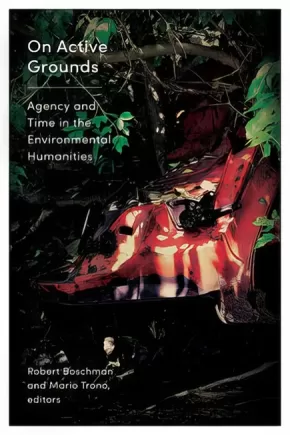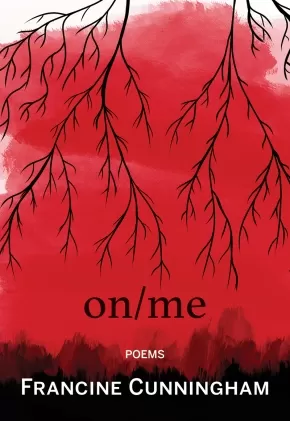Adult Book
Synopsis:
A stunning new voice in nature writing makes an epic journey along the Yukon River to give us the stories of its people and its protagonist--the king salmon, or the Chinook--and the deepening threat to a singular way of life, in a lyrical, evocative and captivating narrative.
The Yukon River is 3,190 kilometres long, flowing northwest from British Columbia through the Yukon Territory and Alaska to the Bering Sea. Every summer, millions of salmon migrate the distance of this river to their spawning ground, where they go to breed and then die. The Chinook is the most highly prized among the five species of Pacific salmon for its large size and rich, healthy oils. It has long since formed the lifeblood of the economy and culture along the Yukon--there are few communities that have been so reliant on a single source. Now, as the region contends with the effects of a globalized economy, climate change, fishing quotas and the general drift towards urban life, the health and numbers of the Chinook are in question, as is the fate of the communities that depend on them.
Travelling in a canoe along the Yukon River with the migrating salmon, a three-month journey through untrammeled wilderness, Adam Weymouth traces the profound interconnectedness of the people and the Chinook through searing portraits of the individuals he encounters. He offers a powerful, nuanced glimpse into the erosion of indigenous culture, and into our ever-complicated relationship with the natural world. Weaving in the history of the salmon run and their mysterious life cycle, Kings of the Yukon is extraordinary adventure and nature writing and social history at its most compelling.
Awards
- 2019 Lonely Planet Adventure Travel Book of the Year Winner
- 2018 Sunday Times/Peters Fraser + Dunlop Young Writer of the Year Award
Reviews
“Travel writing? Climate change? Here’s a book that does it all . . . He writes like Annie Dillard, Bruce Chatwin and Jack London combined: suspenseful and sensitive storytelling and sumptuous descriptions.” —National Observer
“Shift over, Pierre Berton and Farley Mowat. You, too, Robert Service. Set another place at the table for Adam Weymouth, who writes as powerfully and poetically about the Far North as any of the greats who went before him.” —Roy MacGregor, author of Original Highways: Travelling the Great Rivers of Canada
“A moving, masterful portrait of a river, the people who live on its banks, and the salmon that connect their lives to the land. It is at once travelogue, natural history, and a meditation on the sort of wildness of which we are intrinsically a part. Adam Weymouth deftly illuminates the symbiosis between humans and the natural world—a relationship so ancient, complex, and mysterious that it just might save us.” —Kate Harris, author of Lands of Lost Borders: Out of Bounds on the Silk Road
“I thoroughly enjoyed traveling the length of the Yukon River with Adam Weymouth, discovering the essential connection between the salmon and the people who rely upon them. What a joy it is to be immersed in such a remote and wondrous landscape, and what a pleasure to be in the hands of such a gifted narrator.” —Nate Blakeslee, author of The Wolf: A True Story of Survival and Obsession in the West
“Beautiful, restrained, uncompromising. The narrative pulls you eagerly downstream roaring, chuckling and shimmering just like the mighty Yukon itself.” —Ben Rawlence, author of City of Thorns
“An enthralling account of a literary and scientific quest. Adam Weymouth vividly conveys the raw grandeur and deep silences of the Yukon landscape, and endows his subject, the river’s King Salmon, with a melancholy nobility.” —Luke Jennings, author of Atlantic and Codename Villanelle
“Adam Weymouth's account of his canoe trip down the Yukon River is both stirring and heartbreaking. He ably describes a world that seems alternately untouched by human beings and teetering at the brink of ruin.” —David Owen, author of Where the Water Goes
Additional Information
288 pages | 5.18" x 8.00"
Synopsis:
Réunis sous la sweatlodge et guidés par l’Aîné selon un rituel ancestral, de jeunes Autochtones se voient, tour à tour, invités à revenir sur un sombre épisode de leur passé. Ces histoires à plusieurs voix les rassemblent autour d’un objectif commun : le désir de guérison.Miné par un parcours âpre, douloureux, cruel, chacun de ces personnages cherche une issue à son mal-être dans la sagesse des Premières Nations. Dans ce premier recueil de nouvelles, Midnight Sweatlodge, qui lui a valu, en 2012, le prestigieux Independent Publishers Book Award, Waubgeshig Rice évoque en filigrane ce que c’est que d’être autochtone aujourd’hui.
Additional Information
Fiction - Short Stories
Synopsis:
Gabriel Dumont Institute Press is honoured to publish Cecile Blanke’s Lac Pelletier: My Métis Home. A prominent Métis Elder living in Swift Current, Saskatchewan, but with deep roots in nearby Lac Pelletier, Cecile has been a tireless presence on the Métis and larger cultural scene in southwest Saskatchewan for many years. The history of the southwest Saskatchewan Métis is not widely known, and this book contributes significantly to our knowledge of this community. With her vivid memories of Lac Pelletier’s local families and traditions, we are left with an enduring portrait of a caring Métis community which maintained close family ties and lived in harmony with Lac Pelletier’s flora and fauna. Cecile also chronicles the racism that the local Métis often faced and discussed how colonization made her and others question their Métis identity. With time and perspective, she overcame this self-hatred and became proud of her Métis heritage, becoming its biggest promoter in her region of Saskatchewan.
Educator Information
Recommended by Gabriel Dumont Institute for these grade levels: Secondary/Post-Secondary/Adult
Synopsis:
Law’s Indigenous Ethics examines the revitalization of Indigenous peoples’ relationship to their own laws and, in so doing, attempts to enrich Canadian constitutional law more generally. Organized around the seven Anishinaabe grandmother and grandfather teachings of love, truth, bravery, humility, wisdom, honesty, and respect, this book explores ethics in relation to Aboriginal issues including title, treaties, legal education, and residential schools.
With characteristic depth and sensitivity, John Borrows brings insights drawn from philosophy, law, and political science to bear on some of the most pressing issues that arise in contemplating the interaction between Canadian state law and Indigenous legal traditions. In the course of a wide-ranging but accessible inquiry, he discusses such topics as Indigenous agency, self-determination, legal pluralism, and power. In its use of Anishinaabe stories and methodologies drawn from the emerging field of Indigenous studies, Law’s Indigenous Ethics makes a significant contribution to scholarly debate and is an essential resource for readers seeking a deeper understanding of Indigenous rights, societies, and cultures.
Reviews
"Law’s Indigenous Ethics addresses very controversial topics in Canada, not just in Indigenous legal studies, but far beyond that. John Borrows employs story work methodology, along with thorough legal research, ensuring that his work is truly leading edge. Law’s Indigenous Ethics will further advance Indigenous studies in Canada and beyond. Borrows’s work moves beyond the binary, divisive, and linear ideologies dominating the Indigenous intellectual landscape in Canada. He provides nuance, complicates dominate narratives, and gives the reader much food for thought and, more importantly, asks the reader to think, reflect, and embrace the principles embedded in the seven grandmother and grandfather teachings as a whole." -Deborah McGregor, Osgoode Hall Law School, Canada Research Chair in Indigenous Environmental Justice, York University
"Law’s Indigenous Ethics is extremely novel, important, and has the potential for great influence. Demonstrating tremendous expertise and fluency with its subjects, John Borrows’s arguments are sound and thoughtful, providing a number of important insights that lead me to adjust the way I think about issues that are very familiar to me." -Bethany Berger, Wallace Stevens Professor of Law, University of Connecticut
Additional Information
400 pages | 6.00" x 9.00"
Synopsis:
Exploring intergenerational trauma in Indigenous communities — and strategies for healing — with provocative prose and an empathetic approach
Indigenous peoples have shockingly higher rates of addiction, depression, diabetes, and other chronic health conditions than other North Americans. According to the Aboriginal Healing Foundation, these are a result of intergenerational trauma: the unresolved terror, anger, fear, and grief created in Indigenous communities by the painful experiences of colonialism, passed down from generation to generation.
How are we to turn this desperate tide? With passionate argumentation and chillingly clear prose, author and educator Suzanne Methot uses her own and others’ stories to trace the roots of colonial trauma and the mechanisms by which trauma has become intergenerational, and she explores the Indigenous ways of knowing that can lead us toward change.
Reviews
“This book is accessible, relatable, and full of storytelling about real people. It deeply resonates with me as a traditional counsellor, educator, and Indigenous person. Suzanne Methot, a brave Nehiyaw writer and community helper, takes up the challenges of logically explaining a child’s traumatized brain and body and how these impacts continue into adulthood. Methot also explores Indigenous health-care models, proving that Indigenous values provide solutions. This book uncovers the critical need for legislation that moves from creating ‘a renewed relationship’ with Indigenous peoples to creating real structural change.” — Dr. Cyndy Baskin, Mi’kmaq Nation, Associate Professor, School of Social Work, Ryerson University
Educator Information
A version of this work for young adults is available here: Killing the Wittigo: Indigenous Culture-Based Approaches to Waking Up, Taking Action, and Doing the Work of Healing
Additional Information
368 pages | 5.50" x 8.50"
Synopsis:
Over the past fifty years, Canada's Indigenous Affairs department (now two departments with more than 30 federal co-delivery partners) has mushroomed into a "super-province" delivering birth-to-death programs and services to First Nations, Inuit and Métis people. This vast entity has jurisdictional reach over 90-percent of Canada's landscape, and an annual budget of some $20-billion. Yet Indigenous people have no means to hold this "super-province" accountable to them. Not a single person in this entity has been elected by Indigenous people to represent their interests. Not one. When it comes to federal Indigenous policy, ordinary Indigenous people in Canada are voiceless and powerless.
In Let the People Speak: Oppression in a Time of Reconciliation, author and journalist Sheilla Jones raises an important question: are the well-documented social inequities in Indigenous communities--high levels of poverty, suicide, incarceration, children in care, family violence--the symptoms of this long-standing, institutionalized powerlessness? If so, the solution lies in empowerment. And the means of empowerment is already embedded in the historic treaties. Jones argues that there can be meaningful reconciliation only when ordinary Indigenous Canadians are finally empowered to make their voices heard, and ordinary non-Indigenous Canadians can join with them to advance a shared future.
Educator Information
Includes a foreword from Sheila North. Sheila is from the Bunibonibee Cree Nation and is the former Grand Chief of the Manitoba Keewatinowi Okimakanak (MKO), and former Chief Communications Officer for the Assembly of Manitoba Chiefs. She is a former Gemini-nominated CBC journalist, former CTV journalist and documentarist.
Additional Information
256 pages | 6.00" x 9.00"
Synopsis:
Eating sustainable seafood is about opening your mind (and fridge) to a vast array of fish and shellfish that you might not have considered before - and the Pacific Coast is blessed with an abundance of wild species. With Lure, readers embark on a wild Pacific adventure and discover the benefits of healthy oils and rich nutrients that seafood delivers. This stunning cookbook, authored by chef and seafood advocate Ned Bell, features simple techniques and straightforward sustainability guidelines around Pacific species as well as 80 delicious recipes to make at home. You'll find tacos, fish burgers, chowders, and sandwiches- the types of dishes that fill bellies, soothe souls and get happy dinner table conversation flowing on a weekday night - as well as elegant (albeit still simple-to-execute) dinner party options, such as crudo, ceviche, and caviar butter.
Reviews
“Ned’s first cookbook Lure features a set of sustainable seafood recipes that are accessible, well considered and, most importantly, delicious.” – Michael Cimarusti, Michelin-starred chef of Providence
“Ned Bell is one of that laudable cadre of young chefs who has taken the trouble to learn not only the names of his farmers but also his fishers. If, like me, you’re committed to sustaining the health of the oceans, you’ll grab this book that shows you how to cook all the responsibly-harvested gifts of the sea.” – Tom Douglas, American executive chef, restaurateur, author, and radio talk show host.
“I’m going to go out on a limb and suggest that Lure is the most important cookbook of the year, if not the decade.” – Tim Pawsey, Hired Belly
“Lure is at once a cookbook, coffee table showpiece, and educational manual. With straightforward recipes and a digestible approach to ocean sustainability, Lure is a beautiful and accessible guide for the conscientious cook.” – NUVO Magazine
“It should come as no surprise that Lure, his first cookbook, co-written with ace writer Valerie Howes, is just wonderful too. It’s a beauty of book—bright, full of gorgeous imagery and laid out in an attractive easy-to-understand style” – BC Living
Additional Information
304 pages | 9.14" x 9.99"
Synopsis:
At a time when the Métis are becoming increasingly visible on Canada’s political scene, Métis Politics and Governance in Canada offers a novel and practical guide to understand who the Métis are, how they govern themselves, and the challenges they face on the path to self-government.
The Métis have always been a political people. With the culmination of the North-West Resistance in 1885 and the hanging of their spiritual and political leader, Louis Riel, the Métis continued to take political action to give life to Riel’s vision of a self-governing Métis Nation in Canada.
Drawing on interviews with elders, leaders, and community members, Kelly Saunders and Janique Dubois reveal how the Métis have adapted their governance structures in accordance with their way of life as a distinct, rights-bearing Indigenous people. They look to the Métis language – Michif – to identify Métis principles of governance that emerged during the fur trade and that continue to shape Métis governance structures. Both then and now, the Métis continue to negotiate their place alongside federal and provincial partners in Confederation.
As Canada engages in nation-to-nation relationships to advance reconciliation, this book provides timely insight into the Métis Nation’s ongoing struggle to remain a free and self-governing Indigenous people.
This book will appeal to anyone interested in the Métis Nation and Indigenous self-government, including scholars in Political Science, Indigenous Studies, and Public Policy as well as government officials and the general public.
Reviews
"Métis Politics and Governance in Canada explores an aspect of Métis existence in Canada that has been neglected for far too long: the workings of contemporary Métis political organizations at the provincial and national levels. It is a must-read for anyone interested in Métis political organizing, leadership, representation, and the values inherent in Métis political activity." - Joe Sawchuk, co-author of From New Peoples to New Nations: Aspects of Métis History and Identity from the Eighteenth to the Twenty-First Centuries
"Unlike other academic works that simply look at the Métis Nation’s self-government as frozen in time and tied to 1869/70 or 1885, this book compellingly tells the “rest of the story” up to the present day. Uniquely, it also looks to the Métis Nation’s own language – Michif – to identify and understand key principles of Métis governance that continue to today. This book is essential reading for those who want to better understand the current state of Métis Nation self-government in Canada." - Jason Madden, co-managing partner of Pape Salter Teillet LLP
Additional Information
220 pages | 5.50" x 8.50"
Synopsis:
Master Tłı̨chǫ storyteller and bestselling author Richard Van Camp captures the shifting and magical nature of the North in this stunning collection of short stories.
The characters of Moccasin Square Gardens inhabit Denendeh, the land of the people north of the sixtieth parallel. These stories are filled with in-laws, outlaws and common-laws. Get ready for illegal wrestling moves (“The Camel Clutch”), pinky promises, a doctored casino, extraterrestrials or “Sky People,” love, lust, and prayers for peace.
While this is Van Camp’s most hilarious short story collection, it’s also haunted by the lurking presence of the Wheetago, human-devouring monsters of legend that have returned due to global warming and the greed of humanity. The stories in Moccasin Square Gardens show that medicine power always comes with a price.
To counteract this darkness, Van Camp weaves a funny and loving portrayal of the Tłı̨chǫ Dene and other communities of the North, drawing from oral history techniques to perfectly capture the character and texture of everyday small-town life. “Moccasin Square Gardens” is the nickname of a dance hall in the town of Fort Smith that serves as a meeting place for a small but diverse community. In the same way, the collection functions as a meeting place for an assortment of characters, from shamans and time-travelling goddess warriors to pop-culture-obsessed pencil pushers, to con artists, archivists and men who just need to grow up, all seeking some form of connection.
Educator Information
Recommended in the Canadian Indigenous Books for Schools 2019-2020 resource list as being useful for grades 11 and 12 for these subjects: English Language Arts, Media Studies, Social Studies.
Includes mature language, sexual references, gory violence, and content related to sexual abuse and trauma.
Additional Information
160 pages | 5.50" x 8.50"
Synopsis:
Take your therapeutic practice with children, youth, and families out into nature.
The number of children, youth, and families seeking help for a wide range of mental health concerns is growing at an alarming rate, and many struggle to thrive despite well-intentioned interventions from skilled helpers. Unplugging from technology and reconnecting with the web of life is a powerful antidote to the highly technological and fast-paced realities of so many.
Nature-Based Therapy addresses this underlying disconnection between humans and their ecological home, exploring theories and therapeutic practices undertaken with children, youth, and families, including:
- Developing sensory awareness of outer and inner landscapes
- Navigating risk in play
- Case examples with a diverse range of settings, intentions, and interventions.
Nature-Based Therapy is for counselors, therapists, youth and social workers, educators, and parents working in educational and therapeutic settings who want to take their practice beyond the office walls and into the powerful terrain of the wild, partnering with nature as a co-facilitator to create lasting change.
Additional Information
304 pages | 6.00" x 9.00"
Synopsis:
In the follow-up to his Griffin Poetry Prize-winning collection, This Wound is a World, Billy-Ray Belcourt aims more of an anthropological eye at the contours of NDN and queer social worlds to spot much that is left unsaid when we look only to the mainstream media. In this genre-bending work, Belcourt employs poetry, poetics, prose, and textual art to illuminate the rogue possibilities bubbling up everywhere NDNs are.
Part One examines the rhythms of everyday life, which include the terrible beauty of the reserve, the afterlives of history, and the grammar of anal sex. Part Two experiments with form and practice, putting to use, for example, a mode of documentary poetics that unearths the logics that make and unmake texts like Treaty 8.
NDN Coping Mechanisms: Notes from the Field emerges out of a form of auto/ethnographic sensibility that is at turns campy and playful, jarring and candid, displaying, once again, the writer’s extraordinary craft, guile, audacity, and the sheer dexterity of his imagination.
Awards
- 2019 Stephan G. Stephansson Award for Poetry Winner
Reviews
"This brilliant book is endlessly giving, lingering in tight spaces within the forms of loneliness, showing us their contours. These poems do the necessary work of negotiating with the heart-killing present from which we imagine and make Indigenous futures. Every line feels like a possible way out of despair.” — Elissa Washuta, author of My Body Is a Book of Rules
“‘I believe I exist. / To live, one can be neither / more nor less hungry than that.’ How grateful I am that Billy-Ray Belcourt and these poems believe in themselves enough to exist. With prodigious clarity, this work moves swiftly amongst theory and prose, longing and lyric, questioning and coping, ‘not dying’ and ‘obsessively apologizing to the moon for all that she has to witness.’ It is not hyperbole to say these poems are brilliant. And so brilliantly, searingly, they live.” — TC Tolbert, author of Gephyromania
“NDN Coping Mechanisms is a haunting book that dreams a new world — a ‘holy place filled with NDN girls, hair wet with utopia’ — as it simultaneously excoriates the world that ‘is a wound’ and the historic and present modalities of violence against Indigenous peoples under Canadian settler colonialism. Belcourt considers the genocidal nation-state, queerness, and the limits and potential of representation, often through a poetic/scholarly lineage that includes Leanne Betasamosake Simpson, Saidiya Hartman, Anne Boyer, José Esteban Muñoz, Christina Sharpe, and Gwen Benaway, among others. This is the beautiful achievement of NDN Coping Mechanisms: Belcourt conjures a sovereign literary space that refuses white sovereignty and is always already in relation to the ideas of the foremost decolonial poets and thinkers of Turtle Island.” — Mercedes Eng, author of Prison Industrial Complex Explodes
Additional Information
112 pages | 6.00" x 8.00"
Synopsis:
Labrador Innu cultural and environmental activist Tshaukuesh Elizabeth Penashue is well-known both within and far beyond the Innu Nation. The recipient of a National Aboriginal Achievement Award and an honorary doctorate from Memorial University, she has been a subject of documentary films, books, and numerous articles. She led the Innu campaign against NATO’s low-level flying and bomb testing on Innu land during the 1980s and ’90s, and was a key respondent in a landmark legal case in which the judge held that the Innu had the “colour of right” to occupy the Canadian Forces base in Goose Bay, Labrador. Over the past twenty years she has led walks and canoe trips in nutshimit, “on the land,” to teach people about Innu culture and knowledge.
Nitinikiau Innusi: I Keep the Land Alive began as a diary written in Innu-aimun, in which Tshaukuesh recorded day-to-day experiences, court appearances, and interviews with reporters. Tshaukuesh has always had a strong sense of the importance of documenting what was happening to the Innu and their land. She also found keeping a diary therapeutic, and her writing evolved from brief notes into a detailed account of her own life and reflections on Innu land, culture, politics, and history.
Beautifully illustrated, this work contains numerous images by professional photographers and journalists as well as archival photographs and others from Tshaukuesh’s own collection.
Additional Information
288 pages | 6.00" x 8.50" | 128 colour illustrations | 1 map | bibliography
Synopsis:
“Let's be honest: Who hasn't fantasized about shooting someone in the face with a hunting rifle?”
One day, a thirteen-year-old girl decides to startle a classmate. Instead, she accidentally kills him.
And she likes it.
Over the years, she begins experimenting with murder. Her victims are, of course, people that deserve it: a careless driver, a CEO of an energy corporation that is destroying the planet, a rapist. Every crime scene is flawless — untraceable and made to look like an accident or suicide. But, as she sleepwalks through her day job and lives in a crummy apartment, one thing becomes increasingly clear: she needs more.
Because nothing compares to the thrill of violent retribution.
Awards
- The French version of this book won the Indigenous Voices Award for French Prose in 2018.
Reviews
"Kurtness writes smoothly … Readers into passive-aggressive fantasies will best appreciate this one."— Publishers Weekly
"This chiseled writing, this extraordinary character and this particular humour may seduce the most difficult reader." — Le Devoir
"A softly creepy look into a sociopath starting with her thoughts as a 12-year-old. Narrated in a non-linear fashion, she starts with an incident from her past and her philosophy of who deserves to be punished. She’s out for revenge on wrongdoers who bully or disrupt the environment. She grew up with loving parents and a nice home but this is how she is wired. I’m not sure how I feel about the ending but I can see how she evolved to commit that last act." — Audrey Huang, Belmont Books
Educator Information
Translated by Pablo Strauss, who has translated many works of Quebec fiction into English. He grew up in Victoria, B.C., and has lived in Quebec City for fifteen years.
Additional Information
160 pages | 5.00" x 7.00" | Paperback
Synopsis:
On Active Grounds considers the themes of agency and time through the burgeoning, interdisciplinary field of the environmental humanities. Fourteen essays and a photo album cover topics such as environmental practices and history, temporal literacy, graphic novels, ecocinema, ecomusicology, animal studies, Indigeneity, wolf reintroduction, environmental history, green conservatism, and social-ecological systems change. The book also speaks to the growing concern regarding environmental issues in the aftermath of the 2015 Paris Climate Conference (COP21) and the election of Donald Trump in the United States. This collection is organized as a written and visual appeal to issues such as time (how much is left?) and agency (who is active? what can be done? what does and does not work?). It describes problems and suggests solutions. On Active Grounds is unique in its explicit and twinned emphasis on time and agency in the context of the Environmental Humanities and a requisite interdisciplinarity.
Educator Information
Useful for these course/subject areas: Cultural Studies, Film & Media, Environmental Studies, Indigenous Studies, Environmental Humanities.
Table of Contents
Permissions
List of Figures, Photographs, and Tables
Introduction: EcocriticalAgency in Time | Mario Trono and Robert Boschman
I. Eco-Temporal Literacies
1 “The clock’s wound up”: Critical Reading Practices in the Time of Social Acceleration and Ecological Collapse | Paul Huebener
2 A Better Distribution Deal: Ecocinematic Viewing and Montagist Reply | Mario Trono
3 “Allô, ici la terre”: Agency in Ecological Music Composition, Performance, and Listening | Sabine Feisst
4 The Environmental Vampire: Terror, Time, and Territory after 9/11 | Robert Boschman
II. Timelines and Indigeneity
5 "We are key players...": Creating Indigenous Engagement and Community Control at Blackfoot Heritage Sites in Time | Geneviève Susemihl
6 Mapping a Bleak Time: The Mining Legacy of Navajo Nation | Lea Rekow
Photo Essay
Agency and Time on Active Grounds: A Memoir of Bruno Latour and Gaïa Global Circus | Robert Boschman
III. Animal Agents and Human-NonhumanInteractions
7 The Gaze of Predators, Fleshly Worlds, and the Redefinition of the Human | Karla Armbruster
8 Anim-oils: Wild Animals in Petro-Cultural Landscapes | Pamela Banting
9 Reacting to Wolves: The Historical Construction of Identity and Value | Morgan Zedalis and Sean Gould
IV. Systems Change in Time
10 Declarations of Interdependence: Unexpected Human-Animal Conflict and Bhutanese Nonlinear Policy | Randy Schroeder and Kent Schroeder
11 Future Environmental Action in Canada: The German Energiewende as a Model of Public Agency | Mishka Lysack
12 Culture as Vector: (Re)Locating Agency in Social-Ecological Systems Change | Nancy Doubleday
Additional Information
296 pages | 6.00" x 9.00"
Text Content Note: Includes some Indigenous content.
Synopsis:
Francine Cunningham lives with constant reminders that she doesn't fit the desired expectations of the world: she is a white-passing, city-raised Indigenous woman with mental illness who has lost her mother. In her debut poetry collection ON/ME, Cunningham explores, with keen attention and poise, what it means to be forced to exist within the margins. Cunningham does not hold back: she holds a lens to residential schools, intergenerational trauma, Indigenous Peoples forcibly sent to sanatoriums, systemic racism and mental illness, and translates these topics into lived experiences that are nuanced, emotional, funny and heartbreaking all at once. ON/ME is an encyclopedia of Cunningham, who shares some of her most sacred moments with the hope to spark a conversation that needs to be had.
Educator Information
Recommended in the Canadian Indigenous Books for Schools 2020/2021 resource list for grades 8 to 12 in the areas of English Language Arts and Social Studies.
Caution: mature subject matter.
Additional Information
96 pages | 8.00" x 5.50"


